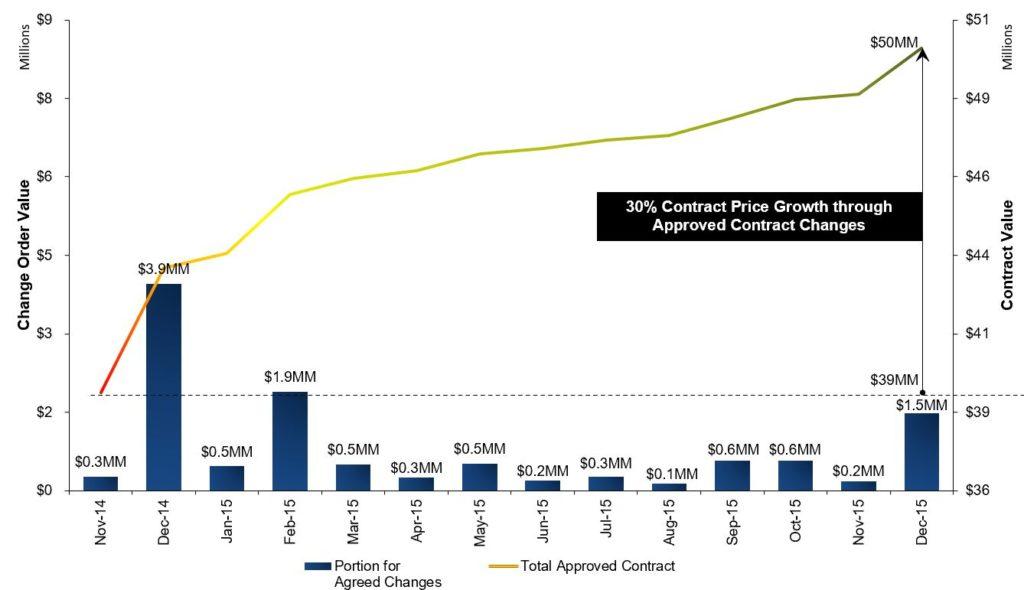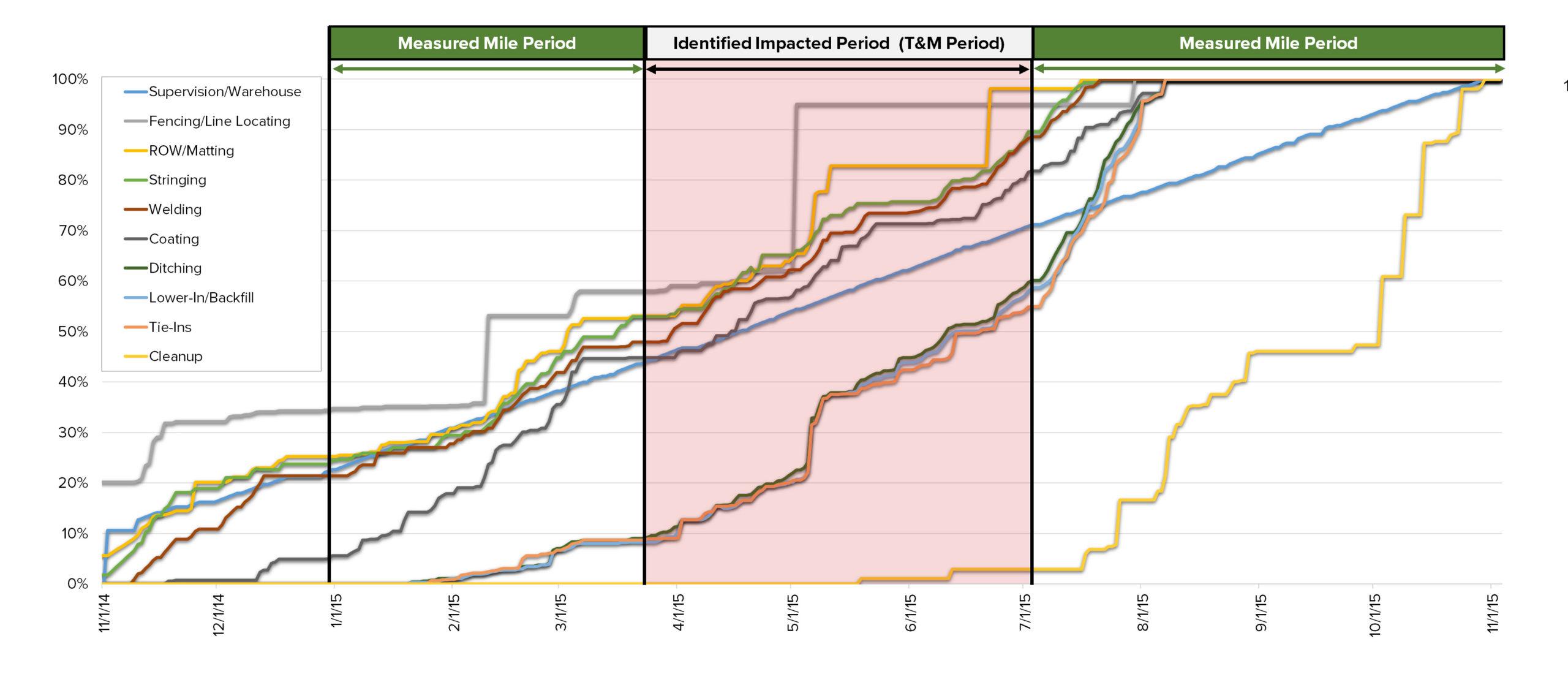Project
- 50+ Mile, 18-inch Pipeline Spread
Contract
- $39MM, Unit Rate Contract
Primary Issues
- Labor Productivity
- Inclement Weather
- Change Management
- Early Completion Incentive
Dispute
A US-based energy company contracted with a local oil and gas pipeline contractor to install a pipeline spanning over 50 miles along the Texas Gulf Coast. Throughout the project, the energy company paid the pipeline contractor $39 million in accordance with the contractual unit rates as well as $11 million for approved change orders. The value of the approved change orders represented a 30% increase to the contract value. Upon completing the project, the pipeline contractor invoiced over $25 million for disputed, unapproved contract change requests concerning horizontal directional drilling issues, weather impacts, labor productivity losses, additional equipment mats, early completion incentives, safety requirements, and various other issues.
The energy company asserted that the unapproved contract change requests did not constitute additional work and were included in the contractual unit rate payments. In addition, the pipeline contractor considered it was owed the early completion bonus it would have achieved but for inclement weather issues; however, the energy company maintained the pipeline contractor was not contractually allowed to claim for weather impacts. These disagreements caused the parties to enter arbitration under the rules of the American Arbitration Association (AAA).

Approach
Counsel for the energy company retained Interface to (1) analyze the pipeline contractor’s labor productivity claim and (2) assess the validity of the disputed change requests under the contract and in relation to standard industry practices.
Measured Mile Analysis
A substantial portion of the pipeline contractor’s claim consisted of time and material billings for lost labor hours expended during the wet spring months. The contractor’s claim lacked contractual entitlement, as the contract required the pipeline contractor to include allowances for inclement weather in its unit rates. To determine if the claim had any factual merit, Interface analyzed the pipeline contractor’s progress and expended labor hours using a measured mile analysis. Interface’s measured mile analysis concluded that the pipeline contractor’s labor productivity improved during the wet spring months compared to the remaining project time periods, which affirmed that the contractor’s labor productivity claim was not valid.

Change Request Analysis
For the remaining disputed change requests, Interface analyzed the contemporaneous project records and provided discrete assessments for the validity and pricing of each alleged change. Interface relied on the documents produced in the arbitration, such as bid documents, alignment sheets, daily reports, project correspondence, meeting minutes, inspectors’ reports, the contract, cost reports, schedules, change order requests, and various other documents. Interface supplemented these data with its experience, knowledge of industry standards, and information available to the public, such as National Oceanic and Atmospheric Administration data as well as Google Earth satellite images. With the exception of one change that was overpriced, Interface demonstrated that each of the disputed changes was invalid.
Outcome
Interface issued an affirmative expert report in accordance with the AAA scheduling order. In addition, Interface issued a rebuttal expert report responding to the three separate reports issued by the pipeline contractor’s experts.
The pipeline contractor’s experts asserted that the pipeline contractor was owed $20 million in damages. After offsetting the early completion incentive bonus that had been paid but not earned, Interface maintained that the pipeline contractor was not owed additional compensation. Interface provided expert testimony at deposition, and the matter settled prior to the arbitration proceedings.

